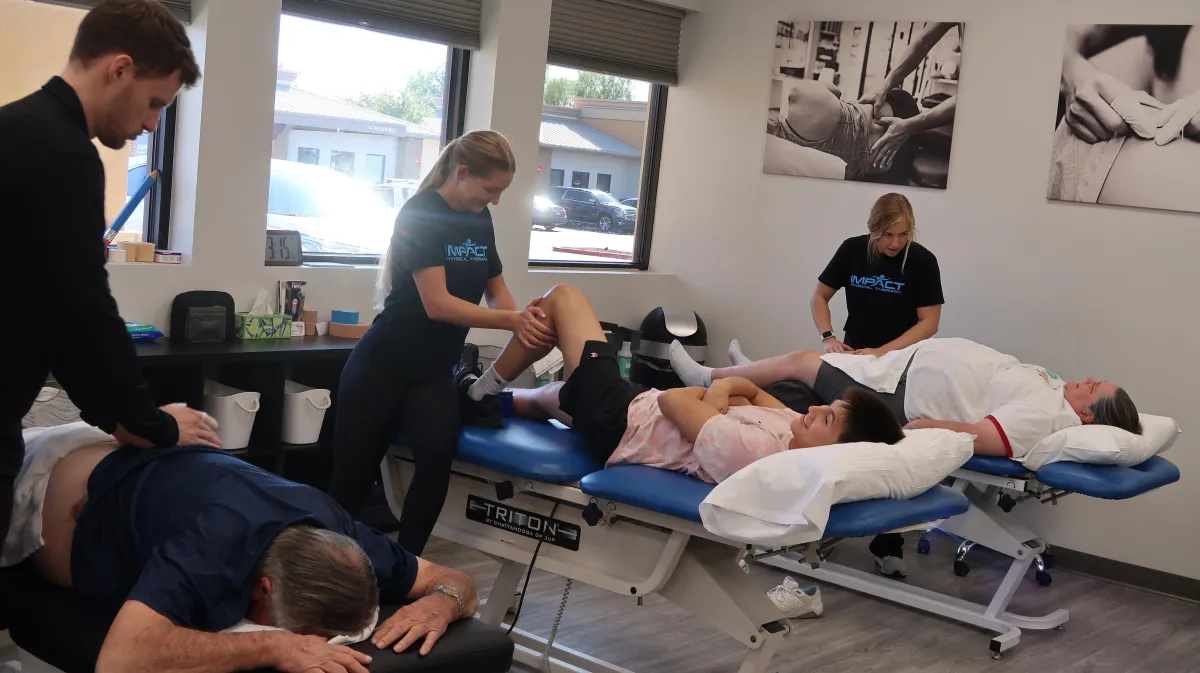
Welcome to Our Blog

Myth-Busting and FAQs About Physical Therapy
Myth-Busting and FAQs About Physical Therapy
Physical therapy (PT) is a vital healthcare service that helps individuals recover from injuries, manage chronic conditions, and improve overall mobility. However, several myths and misconceptions surround this field. In this blog, we will address common myths and frequently asked questions about physical therapy to provide clarity and promote understanding.
Myth 1: Physical Therapy is Only for Injuries
Fact: While physical therapy is well-known for aiding recovery from injuries, it also plays a crucial role in managing chronic pain, neurological conditions, and even post-surgical rehabilitation. Many patients benefit from preventative care, which helps them avoid injuries in the first place. For instance, athletes often incorporate PT into their training regimens to enhance performance and reduce the risk of injury .
Myth 2: Physical Therapy is Painful
Fact: Many people fear that physical therapy will be painful, but therapists aim to create a comfortable environment that promotes healing. While some discomfort may occur during specific exercises, especially when addressing tight muscles or injuries, therapists tailor their approach to each patient’s pain tolerance. The goal is to help patients improve function and mobility without unnecessary pain .
Myth 3: You Need a Doctor’s Referral for Physical Therapy
Fact: In many states, patients can access physical therapy services without a doctor’s referral, thanks to direct access laws. This means that individuals can consult a physical therapist directly for an evaluation and treatment, making it easier to begin therapy promptly . However, some insurance plans may still require a referral, so it’s essential to check with your provider.
Frequently Asked Questions About Physical Therapy
1. What should I expect during my first physical therapy session?
During your initial visit, the physical therapist will conduct a thorough evaluation, which may include a review of your medical history, a physical examination, and functional assessments. Based on this assessment, they will develop a personalized treatment plan tailored to your needs .
2. How long will I need physical therapy?
The duration of therapy varies based on individual conditions and goals. Some patients may see significant improvement within a few sessions, while others may require several weeks or months of treatment. Your therapist will regularly assess your progress and adjust the plan accordingly .
3. Can physical therapy help with chronic conditions?
Yes! Physical therapy can be highly effective for managing chronic conditions such as arthritis, fibromyalgia, and chronic back pain. Therapists use a combination of exercises, manual therapy, and education to help patients manage their symptoms and improve their quality of life .
Conclusion
At Impact Physical Therapy, we believe that understanding the truths about physical therapy is essential for making informed healthcare decisions. By dispelling common myths and addressing frequently asked questions, we aim to empower you on your journey toward recovery and wellness. Whether you’re recovering from an injury, managing a chronic condition, or seeking to enhance your overall quality of life, our dedicated team is here to support you with personalized care and expertise.
If you have more questions about physical therapy or want to explore how it can benefit you, schedule a free consultation to learn how we can help you achieve your health goals.
At Impact Physical Therapy, we focus on YOUR entire system
to not only identify the source of your symptoms, but to also treat the root causes of your shoulder pain.
We have helped hundreds of patients just like yourself avoid surgery, and pain killers by providing a hands on approach. Whether you have tried physical therapy somewhere else, have had pain for years, use pain killers or have tried EVERYTHING …. WE CAN HELP YOU.
Get in for a Free Consultation and let us show you why hundreds of patients have succeeded and now live a happy and active life.
Become one of the hundreds of patients that we have helped get back to an active life!
Why Impact Physical Therapy?
At Impact Physical Therapy, we focus on your entire movement system to not only identify the source of your symptoms, but to also treat the causes of your shoulder pathology.
We feel so confident that you will love the experience – this is why we have a 100% satisfaction guarantee!
Become one of the hundreds of patients that we have helped get back to an active life!
What to Expect from Us:
One-on-one care with a Doctor of Physical Therapy
Individualized plan of care
Innovative techniques such as cupping, dry needling, and kinesiotape
Easy lines of communication
Fast results
Friendly environment where everyone knows your name
Clean, fun and memorable